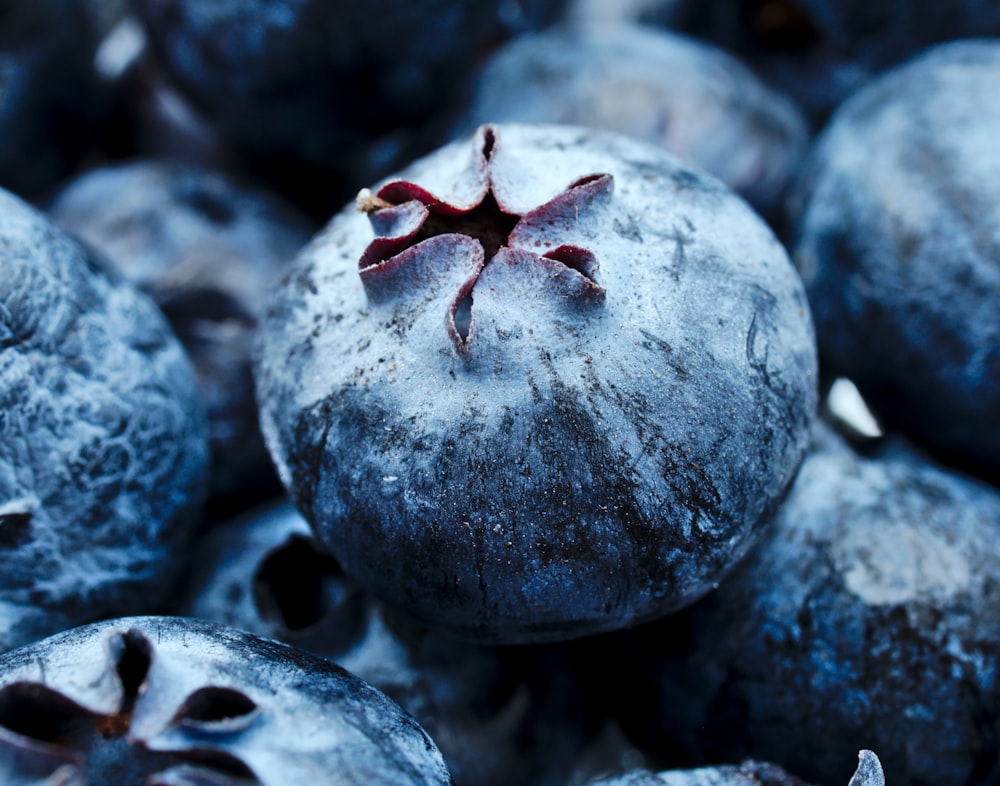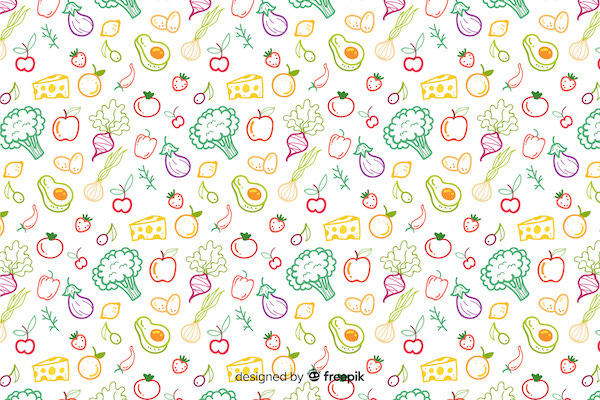Metafact Review: Antioxidants
Are antioxidants important for maintaining good health?
Green Tea. Dark chocolate. Pomegranate juice. You've probably heard from food marketers claiming they contain loads of health boosting ‘antioxidants’. It’d be a good excuse if something as delicious as dark chocolate could be healthy! So what does the evidence say about antioxidants in food? Are they important? Should we seek out antioxidant-rich 'superfoods' or supplements?
We asked some top researchers around the world who study antioxidants to share some facts and myths on this popular food marketing claim. This review was one of our most requested to re-share. Here's what we found...
ORIGIN STORY
Cyanobacteria and the evolution of antioxidants
For the first 2 billion years of its life, earth's atmosphere had no oxygen. Oxygen started to appear about 2.4 billion years ago from a tiny photosynthetic Cyanobacteria. Up until that moment, life on earth was unicellular and anaerobic, meaning oxygen was toxic to life. Known as 'The Great Oxidation Event', those prehistoric organisms had a stark choice the moment oxygen began increasing in the atmosphere: evolve to produce 'antioxidants' to protect themselves against oxidation, or move to anaerobic environments or die.
Some organisms buried themselves deep in the mud to flee the oxygen (where they exist today), but many became extinct. Some cyanobacteria however evolved to produce anti-oxidants that allowed them to survive in an oxygenated environment. "Over time more advanced antioxidant systems evolved, allowing Cyanobacteria to adapt to an aerobic lifestyle and become the most important environmental engineers in Earth history" says geobiologist Professor Woodward Fischer from Caltech says in a 2016 article.
Plants evolved from cyanobacteria and therefore, also evolved to produce an array of antioxidant compounds including carotenoids, flavonoids, benzoic acids, folic acid, ascorbic acid. As more advanced life evolved within an oxygenated atmosphere, humans also evolved an effective antioxidant system to combat the damaging oxidation. Increased melanin in skin (tanning) in response to exposure to UV radiation is an example of an antioxidant response in the skin. The real debate today however, is whether consuming additional dietary antioxidants can help humans protect themselves against disease and live longer.
EXPLAINER
What are ‘antioxidants’?
Antioxidants are certain types of molecules that protect other molecules from a chemical process called oxidation. Oxidation is very common and important for us to live. Glucose for example, a sugar from the food we consume, is oxidized by the oxygen we breathe which gives us the energy to live. Food preservatives are also type of ‘antioxidant’ as they prevent the oxidation process and food spoilage.
In our body, however, the oxidation process can damage important molecules in our cells, including DNA and proteins. Antioxidants are important since they can prevent or reduce this damage. Uncontrolled oxidation is typically caused by highly reactive molecules known as ‘free radicals’.
What are ‘free radicals’?
Free radicals are unstable molecules that can damage cells. Antioxidants help mop up excess free radicals. The body can cope with some free radicals and even needs them to function effectively. However, the damage caused by an overabundance of free radicals over time may become irreversible and lead to certain diseases including heart disease and some cancers.
Having an imbalance of electrons makes the free radical unstable and places the body in a state of oxidative stress. Oxidation can be accelerated by stress, cigarette smoking, alcohol, too much sunlight, pollution and other factors. Oxidative stress and an excess of free radicals can lead to damage of:
Nucleic acids leading to cancerous changes
Membrane lipids and LDL-cholesterol in arteries
Enzymes which repair cell structures
Other proteins such as collagen
So where does our supply of antioxidants come from?
Antioxidants come from many different vitamins and minerals like vitamin C, vitamin E, beta-carotene and selenium. “Generally our body makes most of its antioxidant enzymes in the right amounts needed” says Professor Margreet Vissers from the University of Otago, but our diet is also important.
“Vegetables, fruit and tea are sources of dietary antioxidants. Even though chocolate and red wine also contain antioxidants, consuming them to increase antioxidant status is not recommended” says nutrition scientist from North-West University Dr Cornelie Nienaber-Rousseau. “However, microgreens [like basil, coriander or kale] are very good sources of antioxidants or phytochemicals”. Plant-based foods are rich in something called phytochemicals—"plant chemicals"—many of which also have antioxidant properties that interact importantly.
For example, Vitamin C is an antioxidant, while a phytochemical called hesperetin (found in oranges and other citrus fruits) restores the vitamin C to its active antioxidant form. Carotenoids (such as lycopene in tomatoes and lutein in kale) and flavonoids (such as anthocyanins in blueberries, quercetin in apples and onions, and catechins in green tea) are also antioxidants (Source).
CONSENSUS
Are more antioxidants better for you?
100% Negative via 3 experts
Antioxidants can short-circuit the damage caused by free radicals so it seems logical that taking more antioxidants from supplements would be healthier? Clinical trials have failed to substantiate this says Dr Homer Black, biochemist from Taylor College of Medicine. And some antioxidants have been shown to be harmful.
"A number of epidemiological studies (principally case-control) have found inverse associations with carotenoid levels (both dietary intake and blood levels) and cancer risk. However, clinical trials have failed to substantiate such a relationship and one even found an 18% increase in lung cancer among male smokers receiving beta-carotenoid supplements.
Recent experimental evidence seems to indicate that beta-carotene, per se, acts as a pro-carcinogenic agent in UV-carcinogenesis when provided as the only carotenoid and phytochemical in the diet. What the public must understand is not all antioxidant mediated reactions are beneficial and antioxidants such as beta-carotene can, under certain conditions, act as a pro-oxidant" says Dr Homer.
Nutrition scientist Dr Tim Crowe confirms this: "Vitamin A as beta-carotene has been associated with a reduced risk of certain cancers, but an increase in others, such as lung cancer in smokers, if vitamin A is purified from foodstuffs."
Experts caution about taking antioxidant supplements. “The notion that antioxidants per se have superpowers in terms of preventing or curing disease has been put to rest long ago” says Professor Jens Lykkesfeldt, a biochemist from the University of Copenhagen. "Ingesting enormous amounts of antioxidants does not necessarily improve your health...Clearly essential micronutrients such as vitamin C that are also antioxidants are good (essential) for you. However, the notion that antioxidants per se has super powers in terms of preventing or curing disease has been put to rest long ago. It is therefore important to distinguish between essential micronutrient that happens to be antioxidants (and are important for humans health) and other ‘generic’ antioxidants that very common in e.g. fruits and vegetables that are not individually essential."
CONSENSUS
Do antioxidants help protect against cancer?
Uncertain via 4 experts
"The idea that antioxidants, consumed in green leafy and yellow vegetables, are cancer protectants arose from a 1981 epidemiologic study in which individuals consuming a greater amount of these vegetables were at a lower risk for cancer" says Dr Homer Black, biochemist from Taylor College of Medicine. "As these vegetables were rich in carotenoids such as beta-carotene, and knowing that beta-carotene was a strong singlet oxygen quencher and antioxidant, it was proposed that this carotenoid, or related carotenoids, might act as a cancer preventive. Whether these carotenoids can reduce cancer risk is unclear and controversial."
"Cancer patients often take antioxidant nutritional supplements during cancer treatment to alleviate treatment toxicities, improve long-term outcomes and replenish antioxidant status that declines during cancer treatment " says Nutrition scientist Dr Cornelie Nienaber-Rousseau "However, summaries of the scientific studies on antioxidant supplements (beta carotene, vitamin A, vitamin C (ascorbic acid), vitamin E, and selenium) for prevention of cancers found no evidence that they prevent cancers (Bjelakovic et al., 2004). In fact some antioxidant supplements (beta carotene, vitamin A, and vitamin E) seem to increase overall mortality (Bjelakovic et al., 2004; Bejelakovic et al., 2007)" she writes.
CONSENSUS
Are antioxidants overhyped?
Experts suggest most of the hype on superfood antioxidants don’t match the science, particularly with regard to taking supplements as “intake needs to be controlled according to usage as some of these can be overdosed (Vitamin A, Vitamin E and selenium are toxic in high doses)” says Professor Vissers from University of Otago.
The good news is that evidence seems to suggest that whole foods are more effective than supplements says Dr Tim Crowe: "There is increasing evidence that antioxidants are more effective when obtained from whole foods, rather than isolated from food and presented in tablet form with some antioxidant supplements actually increase cancer risk". “Antioxidants should preferably come from food and not be supplemented”, says Nutrition Scientist Dr Cornelie Nienaber-Rousseau.
What about superfoods?
“Despite the marketing hype, antioxidants found in so-called superfoods [like goji berries, blueberries or pomegranate juice] are no more effective than those in regular fruit and veg, so you’re better off saving your money” writes Dr Jacqui Adcock from Deakin University in The Conversation.
EXPERT PERSPECTIVE
Fruits & vegetables are much more than just antioxidants
Polyphenols are micronutrients that we get through certain plant-based foods and should take more credit for any overall health benefit says Dr Tim Crowe: "A brief reading about polyphenols on the Internet will bring up article after article highlighting that polyphenols are antioxidants and that explains their health benefits" he writes. "But nutrition science though has well-and-truly moved on from using such simplistic language and concepts to describe how these thousands of polyphenols found in food work. They are much more than antioxidants. You need to step back and see the bigger picture. It should instead be about polyphenols and their multitude of benefits and actions in the body such as:
Regulating cell growth and death
Slowing down cancer cell proliferation
Altering glucose responses and insulin sensitivity
Increasing activity of enzymes involved in removing harmful substances from the body
Decreasing inflammation
So it seems the whole fruit and vegetables offer alot more health benefits beyond just being antioxidants.
TOP ANSWER
Will antioxidants absorbed from vegetable and fruit protect us from cancer?
There is reasonable evidence that following a diet that contains more fruits and vegetables can be protective of some cancers. This is reviewed in a report by the World Cancer Research Fund (Third Expert Report on Diet, Nutrition, Physical Activity and Cancer: A Global Perspective).
The protective effects of fruits and vegetables are likely due to the combination of compounds present in those foods, not just compounds that have antioxidant activity. This combination would be very hard to replicate in a pill. In considering foods associated with cancer prevention, diet as a whole needs to be taken into account (in other words, the things one eats with the vegetables) as well as whether or not the calories eaten are expended (aka energy balance). It is difficult for the beneficial effects of a good diet to be exerted in the face of a positive energy balance that leads to weight gain.
Dr Zora Djuric, An expert from University of Michigan in Nutrition, Cancer
Takeaways
Antioxidants do serve important roles in our body and diet is an important source of them to maintain health.
Antioxidants are not just one molecule, our supply can come via many different vitamins and minerals. Plant-based foods are rich in antioxidants and also contain thousands of other plant chemicals that likely benefit our health more than antioxidants alone.
Experts suggests antioxidant supplements do not work as well as the naturally occurring antioxidants in whole foods such as fruits and vegetables.
Be very wary of antioxidant supplementation as evidence shows it can be harmful.
Experts say there’s lots of hype on antioxidants. You can save your money on superfoods - just maintain a diverse diet with lots of fruits and vegetables.
All content is general in nature and educational information only. Remember to always talk to your healthcare professional on questions regarding your health - they are your best source of evidence.




